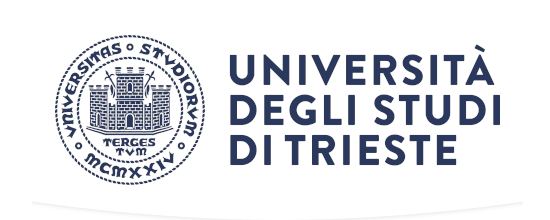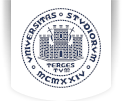Design engineer
Functions: Design both individually and within a work group of electrical equipment, automation equipment, systems, even complex and innovative, for production, transport and distribution, conversion, use, the management and governance of electricity. Creation and verification of experimental prototypes of the conceived and designed systems. In addition to the more traditional areas, the design activity also extends to the more innovative ones relating, for example, to renewable energy (photovoltaic, wind, tidal, etc.) or sustainable energy (energy from fuel cells).
Skills: The design of any device is a typical synthesis activity in which state-of-the-art knowledge on all topics characterizing the electrical and automatic/systems sectors must be conveyed. To be able to follow the typical design steps (feasibility study, logical-functional conception, sizing, prototype creation and functioning verification) of a vast range of applications it is necessary to set up the CdS with the aim of reaching a adequate logical-formal and methodological preparation on all typical topics of electrical and systems engineering. In this way, graduates will be able to propose and study innovative solutions and, thanks to their synthesis skills, arrive at the preparation of even complex and unusual system projects.
Outlet: Design offices of institutions/companies with more or less widespread activities in the field of electrical energy and systems: companies manufacturing electrical and industrial automation equipment (machines, drives, converters, plant engineering components , automation systems, robotics, etc.), entities for the production and/or distribution and/or management of electrical energy, engineering design studios. Looking ahead, an activity at the managerial level of coordination and direction of the entire design sector of the company/institution is envisaged, with responsibility for the management of financing. Access the freelance profession after passing the required qualifying exam.The particular interdisciplinary preparation allows you to deal with complete competence with automation systems created with electrical equipment or with electrical systems controlled through regulation-optimization-identification algorithms typical of systems theory.
Engineer for scientific research and technological development in academic or industrial fields
Functions: Basic or applied scientific research activity carried out individually or within national and international research groups. Carrying out experiments, analysis activities of components or systems and creation of prototypes with the use of advanced calculation programs and laboratory instrumentation. Collaboration in the national and international dissemination of scientific research results through participation in conferences, contributions in the preparation of scientific publications or in the formulation of patents. The skills acquired also allow the continuation of training by attending PhD courses or post-graduate master's degrees.Research and development activities in the industrial or service sector, study for technological innovation aimed at improving existing products or services, creating new ones or improving production processes. Looking ahead, there is the possibility of accessing public research roles or accessing managerial roles as manager and coordinator of industrial research and development centres.
Skills: Knowledge for the analysis, modeling, characterization and simulation of electrical and automatic components and systems, including those integrated into complex systems. Ability to evaluate and summarize the results obtained from theoretical investigations or experimental data mainly with regards to the interdisciplinary electrical-automatic axis but also in relation to other disciplinary areas. Ability to set up laboratories and/or test benches for testing the developed algorithms and validating the proposed theories or for testing prototypes. Ability to work in a team or coordinate industrial research and development activities regarding innovative applications related to the electrical or systems sector. Ability to technologically transfer the results obtained from research to the corporate world of production.
Outlet: Universities, public or private research centres, research and development offices in companies, companies or consultancy bodies for technological innovation, freelance consultant.
Quality control and testing engineer
Functions: Activities of verifying that materials, components and products entering the company comply with the specifications imposed on suppliers and verifying that the outgoing products have the characteristics and performances envisaged by the design. Definition of verification and control procedures, adaptation of existing ones to any new needs such as those of an environmental or safety nature. Feedback interaction with design activities and manufacturing processes to improve the final product. Prototype verification and finished product testing activities in the test rooms of companies that need to document and/or certify the performance of individual products. Design and construction of test benches and definition of verification and testing procedures. Looking ahead, there is the possibility of taking on roles as test room manager and/or quality control manager with a managerial position.
Skills: Knowledge of the functional aspects of equipment and individual components, especially of an electrical nature and with automation functions. In particular of systems, procedures and automation of electrical measurements but also of other types. Knowledge of statistical processes for sample checks and for the interpretation of measurements. Knowledge of the main sensors for measuring quantities, acquisition systems and the main data transmission protocols coming from the transducers. Ability to read, interpret and apply current regulations. Ability to analyze and choose, based on economic and/or performance considerations not separate from environmental ones, materials, components and equipment of an electrical nature and with automation functions but also belonging to other engineering fields on the market.
Outlet: Public or private production and assembly companies for the construction of complex systems or consultancy in the management of production processes.
Production engineer
Functions: Management, maintenance, automation and optimization of production lines of equipment and devices in the electrical industry, but also relating to other industrial sectors, especially when the machinery of the lines has a consistent and advanced content of electrical technology and/or in which the automation, robotics and systems suggest solutions that improve performance. Production verification functions evaluating the quality of the product during the production process and of the products obtained; interface functions between design and operational production needs with the aim of improving the efficiency of both the product and production and obtaining an economic benefit. Looking ahead, there is the possibility of accessing managerial functions as production manager.
Skills: Knowledge of the fundamental application aspects relating to the electrical area sectors (converters, electrical machines and drives, electrical systems and installations, electrical measurements) and the automatic area (automatic controls, modeling, systems theory). Knowledge of production processes and their optimization in compliance with current regulations including those relating to the environment.
Outlet: Companies for industrial and manufacturing production in which the production lines have a high technological content in the electrical and automation fields.
Engineer for the analysis, management and maintenance of complex structures and equipment
Functions: Analysis, management and maintenance of electrical systems for the production, transmission, distribution, use and governance of electrical energy also combined with other forms of energy; analysis and management of automation systems in the civil, industrial and service (transport) sectors. Planning, programming, management and optimization of complex systems, especially those connected to electricity, even in the presence of incomplete or uncertain information and technical, economic, environmental and work organization constraints. Activities, with responsible tasks, in operational locations for the management of complex systems, for example: centers for the control of the national or international electrical transmission system, centers for the governance and automation of a ship's electrical system, etc. Technical assistance activities in the post-sales phase for customers of companies producing and installing systems or equipment. Responsibility for safety for the purposes of current legislation, provided that a training offer is prepared that includes teachings that enable the function, even formally.Looking ahead, there is the possibility of achieving managerial roles in the management of entire departments of industrial companies or departments of public/private bodies.
Skills: In-depth knowledge of all the fundamental topics belonging to the scientific-disciplinary sectors of the electrical and automatic fields with the addition of management knowledge (especially energy) and/or safety. The main skills must therefore concern the analysis, modelling, management, programming of systems for the production (which also include renewable and non-polluting sources), transmission, distribution, governance and use of electrical energy. , modeling and automation of even complex systems for applications in the civil, industrial and service sectors.
Outlet: Public or private companies or bodies operating in the industrial, commercial, transport, services and civil infrastructure sectors. Access to the freelance profession with tasks of various kinds such as safety manager, consultant, etc. after passing the required qualifying exam.


